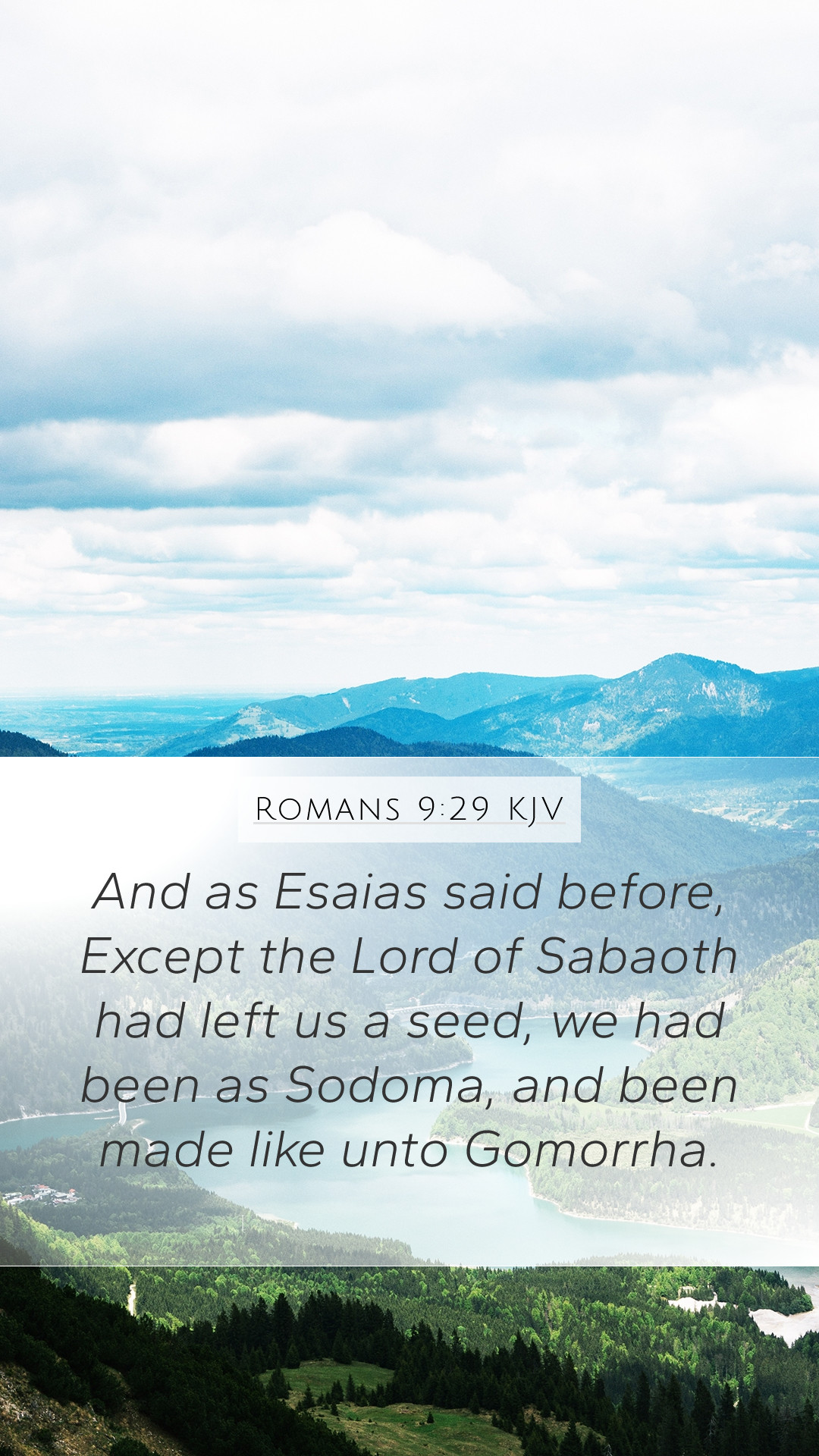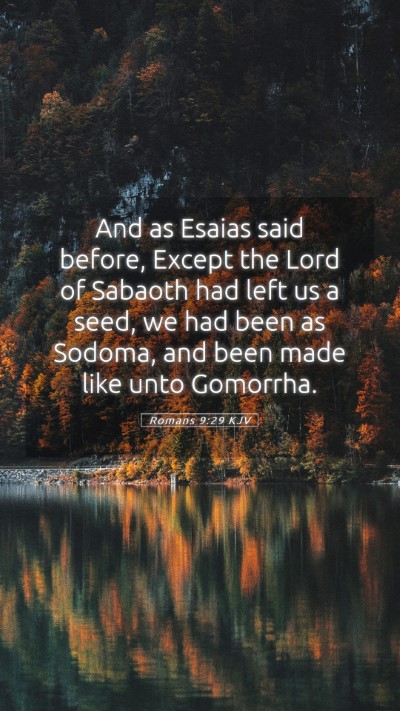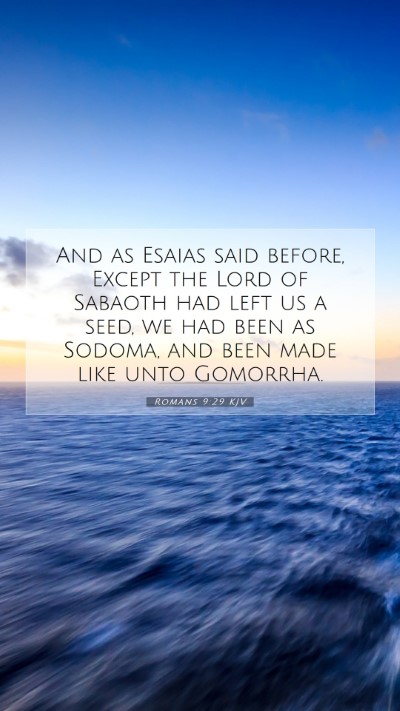Bible Verse Commentary on Romans 9:29
Scripture Reference: Romans 9:29 - "And as Isaiah said before, Except the Lord of Sabaoth had left us a seed, we had been as Sodoma, and been made like unto Gomorrha."
Introduction to the Verse
This verse is a poignant reminder of God's mercy and sovereignty, echoing the sentiments expressed in the Book of Isaiah. The Apostle Paul uses this reference to illustrate the remnant chosen by God amidst a generation facing destruction due to sin.
Interpretation and Insights
The verse expresses a critical theological concept about divine election and the preservation of a faithful remnant. Below are combined insights from renowned public domain commentaries.
Matthew Henry's Commentary
Matthew Henry emphasizes that this quote from Isaiah serves to highlight God's grace. Despite the rampant wickedness analogous to Sodom and Gomorrah, God in His sovereignty has decided to preserve a remnant. Henry notes that the reference to "the Lord of Sabaoth" underscores the authority of God over all creation, capable of both judgment and saving grace.
Albert Barnes' Commentary
Albert Barnes elaborates on the word "seed" as a representation of those who are chosen by God. He points out that the passage reflects a reality that without God's intervention, judgment would be inevitable. He asserts that this remnant is not based on human merit but is entirely due to divine grace which is a recurring theme throughout Paul's writings.
Adam Clarke's Commentary
Adam Clarke provides a historical perspective, linking the prophecy to the events of Israel's impending judgment. He interprets "Lord of Sabaoth" as the Lord of hosts, emphasizing God's power to save or destroy. Clarke indicates that the message is clear: without divine rescue, humanity would face the same fate as the cities destroyed for their sinfulness.
Key Themes and Lessons
- Divine Mercy: This verse highlights God's grace and mercy in preserving His people.
- Judgment and Sovereignty: It underscores the weight of God's sovereignty in the face of human sin.
- Faithful Remnant: It demonstrates that even amidst widespread unfaithfulness, God always reserves a remnant to fulfill His purpose.
Application in Modern Context
Understanding Romans 9:29 is crucial for contemporary believers. It serves as a reminder that despite the moral decay in society, God is still at work, preserving His followers and maintaining a witness in the world. This truth should encourage believers to remain steadfast in faith and mission.
Practical Reflections
- Consider the role of faithfulness within our communities amid societal challenges.
- Reflect on God's past acts of mercy in your life.
- Engage in prayer for those around you who may presently be unrepentant.
Related Bible Verses
- Isaiah 1:9 - "Except the Lord of hosts had left unto us a very small remnant, we should have been as Sodom, and we should have been like unto Gomorrah."
- Romans 11:5 - "Even so then at this present time also there is a remnant according to the election of grace."
- 2 Peter 2:6 - "And turning the cities of Sodom and Gomorrha into ashes condemned them with an overthrow, making them an ensample unto those that after should live ungodly."
Conclusion
In conclusion, Romans 9:29 serves as a profound reminder of God’s mercy and the assurance that His plans prevail even in dark times. The verse is vital for understanding the nuances of divine grace, the condition of mankind, and the eternal hope for believers as part of God's chosen remnant. This reflection invites each individual to embrace the significance of God's faithfulness and the call to reflect His character in our lives.
For more Bible verse meanings and interpretations, delve deeper into scripture analysis and biblical exegesis through these insights and commentary from noted scholars.


